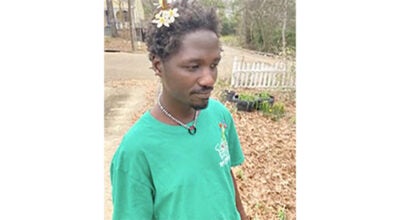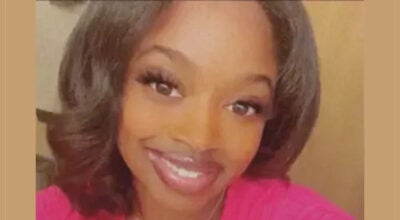Mississippi civil rights pioneer Birdie Walker to turn 103
Published 8:15 am Saturday, August 28, 2021
At 102 years old and facing a birthday this month, Birdie Lee Walker doesn’t remember much about the day 60 years ago when she became one of the first Black citizens to register to vote in Amite County.
Except this: “I voted in Liberty.”
And this: “I just went down there and told them I wanted to vote.”
Sounds simple now, but it was a dangerous endeavor for African Americans 60 years ago.
It was Aug. 15, 1961, when civil rights activist Bob Moses took Walker, her sister Matilda Schoby and their cousin Ernest Isaac to the courthouse in Liberty to register.
The Student Non-Violent Coordinating Committee describes the incident on its website, SNCCdigital.org:
“On Aug. 15, Moses accompanied three local people to the Amite County courthouse in Liberty. The registrar forced them to wait in the courthouse for six hours before they were allowed to fill out the forms. As the group drove from the courthouse, a highway patrolman followed them, pulled them over and arrested Moses.”
Moses spent two nights in jail. Two weeks later he was savagely beaten for accompanying two more people to the courthouse. Moses pressed charges against his attacker, but he was acquitted.
Moses, who became a hero of the Civil Right movement, died July 25 at age 86.
ORAL HISTORY PROJECT
In 2010 a McComb High School class led by Vickie Malone and Howard Levin interviewed Walker for nearly an hour for the “Telling Their Stories” Oral History Project. The interviews are accessible at tellingstories.org.
“We wanted to go register and vote like other people,” said Walker, whose memory was more lucid then.
“The old man said he wasn’t going to let us vote, but after a while he said he’d let us fill out a paper and vote.”
They did, but when they left, a group of white men followed them, eventually pulling them over and arresting Moses.
“I didn’t get scared,” Walker said. “Moses had told us, ‘They’re going to take me to jail.’ He said, ‘Y’all don’t get scared,’ and I didn’t get scared.”
The voters got support that night when the late civil rights activist C.C. Bryant and a group of FBI agents paid them a visit.
LONG LIFE WELL LIVED
Walker was born Aug. 31, 1918, during the Spanish flu pandemic and shortly before the end of World War I. One of three siblings, she was raised in Amite County not far from where she lives now on Upper Glading Road.
She went to Sherman Missionary Baptist Church and was baptized in Muddy Springs Creek around age 5. She went to Mount Canaan School.
Later she married Leroy Hughes, who died decades ago, and had five children, two of whom are deceased.
She cleaned houses and brought in washing for a livelihood, and raised a big garden.
“I just know that she was a hard worker,” said daughter Joanna Turner, 66.
“She was very independent. She wouldn’t do a lot of talking.”
Walker was a disciplinarian as a parent.
“She was one of those ones, she didn’t do a lot of talking, but her eyes would tell you what you need to do,” Joanna said. “She’d tell you once or twice what you need to do, and if you didn’t do it, she’d get a stick.”
She recalled being in bed with her sister when her sister got a whipping.
“From then on, whenever she told me something, I didn’t argue. I did it,” Joanna said.
Walker was a great cook as well, Joanna said, recalling biscuits, rice and gravy, fried chicken, pound cake from scratch.
“I cooked most anything,” Walker said.
“She used to make those big old-time pound cakes better than the ones you get in the store,” Joanna said. “She’d make them from scratch.”
At revival time, Walker would bake cakes and her sister Matilda would make chicken and dumplings.
“Her sister was good at egg pie. Mama was good at sweet potato pie,” Joanna said.
Joanna said she never learned to cook as good as her mom, much less sew. But she learned “mainly try to live worthy, be righteous, treat everybody right.”
Walker’s voter registration wasn’t her only legacy. All of her children became productive, hard-working citizens.
Deceased sons J.B. and Leroy were a mechanic and a cement truck driver, respectively.
The other three children — Joanna, Jeannine Redfield and Isom Upkins — were all teachers, and Upkins was a tennis star as well, with plaques decorating three walls of Walker’s living room.
As for her mother’s place in Civil Rights history, “I’m very proud of her,” Joanna said. “I wish I had the courage they had.”
More News






